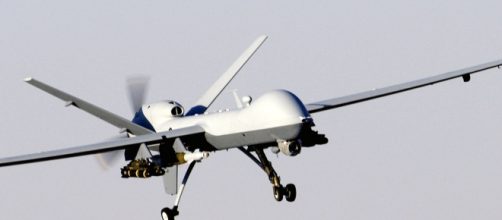A proposal by the CIA for an active involvement in America's wars has been put before President Trump for consideration. According to former and current intelligence officials, the CIA is seeking the power to carry out Drone Strikes against Islamist militants and play an active role, in changing America's strategy in terms of combating these militants.
The proposal, which sources say the White House is warming up to despite initial reservations from the Pentagon, could see Trump ease the restrictions which had been put in place by his predecessor, and give the intelligence Agency the go-ahead.
Restrictions
During Barrack Obama's presidency, the CIA was restricted from taking part in drone strikes in war zones for fear of increasing civilian casualties. Although the Intelligence Agency has taken part in covert drone operations in places like Pakistan, which have never been acknowledged publicly, if approved, it will be the first time the CIA officially goes to war zones.
According to knowledgeable sources who spoke to The New York Times, the CIA will have the ability to launch covert drone strikes in places like Afghanistan, Libya, Somalia, Yemen and probably go beyond the Pakistan border.
Pentagon's misgivings
All along, covert drone strikes have been the exclusive preserve of the Pentagon, and while it does not oppose CIA's proposal to expand to war zones, the main question in military circles is; what will the CIA do differently from what the military is already doing?
Pentagon officials are also worried that American troops on the ground may end up carrying a cross that is not theirs if a CIA drone strike goes wrong and causes civilian casualties. This is because the CIA will not take responsibility in the event it happens.
CIA's perspective
The CIA made a strong case to the President, emphasizing that the war on terror requires all hands on deck, and the more firepower, the better. Director Pompeo pointed out that the Obama administration unnecessarily limited the CIA's input in the war on terror.
Pompeo could find a valuable and rare ally in the form of Afghanistan's top commander General Nicholson who has in the past said that he is welcome to more firepower to use on the enemy regardless of where it comes from.
Some critics argue though, that this could be Trump's way of pulling the plug on transparency in the war, as CIA drone missions cannot be open to public scrutiny like military activities, as they are classified. Hence no one to answer the hard questions or be held responsible if the Agency's shadow operations go south.
This, critics point out, would be a huge moral and strategic mistake on the part of the government.


